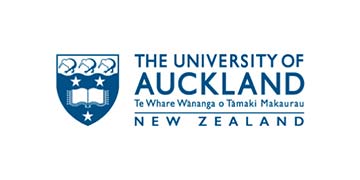University of Auckland: Chemical sciences researcher wins James Cook award
To achieve this means decarbonising the energy sector, with the transition to a Green Hydrogen Economy being the most logical way to achieve net zero carbon emissions.
Associate Professor Geoffrey Waterhouse from the School of Chemical Sciences has been awarded a James Cook Research Fellowship to pursue his work in helping Aotearoa New Zealand achieve those goals.
In a Green Hydrogen Economy, renewably generated electricity is used to split water into hydrogen and oxygen via electrolysis, with the hydrogen produced stored and then used in fuel cells to generate electricity as required.
Key technologies needed for the transition to a Green Hydrogen Economy are rechargeable metal-air batteries (for short term electricity storage), water electrolysers (for H2 production and thus longer-term electricity storage) and hydrogen-fuel cells (for transforming hydrogen to water, thereby generating electricity).
At the heart of these three technologies are two critical electrochemical reactions – the ‘oxygen evolution reaction’ and the ‘oxygen reduction reaction’. Traditionally, expensive precious metal-based catalysts have been used to drive these reactions. The discovery of metal catalysts based on earth abundant elements, capable of driving these reactions efficiently, is essential for the growth of a Green Hydrogen Economy in Aotearoa New Zealand and elsewhere.
Through the Fellowship, awarded by the Royal Society Te Apārangi, Associate Professor Waterhouse will explore the potential of a new type of catalyst – metal single-atom catalysts – for driving the oxygen evolution and oxygen reduction reactions.
Building on previous work, a series of inexpensive single-atom systems will be fabricated and tested for their oxygen reduction and evolution performance, then applied in prototype metal-air batteries, water electrolysers and hydrogen fuel cells.
Associate Professor Waterhouse has authored many seminal works on thermal catalysis, photocatalysis and more recently electrocatalysis, combining experiment and theory in novel ways to greatly improve mechanistic understanding of reactions such as electrocatalytic water splitting to generate hydrogen fuel, carbon dioxide reduction to commodity chemicals, and other selective chemical transformations.
His nanotechnology research also extends broadly into other disciplines, including sensor development for threat monitoring (detection of viruses, pesticides, and heavy metals) and biomedical applications (cancer phototherapy agents and drug delivery systems).
He is an Associate Professor in the School of Chemical Sciences, University of Auckland, and holds Professorships at leading institutions in China. He is a Principal Investigator and Theme Leader in the MacDiarmid Institute for Advanced Materials and Nanotechnology and an Associate Investigator in the Dodd Walls Centre for Photonic and Quantum Technologies.

